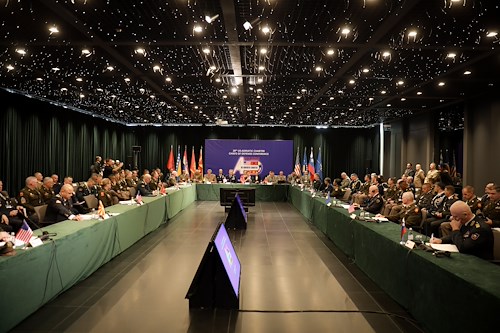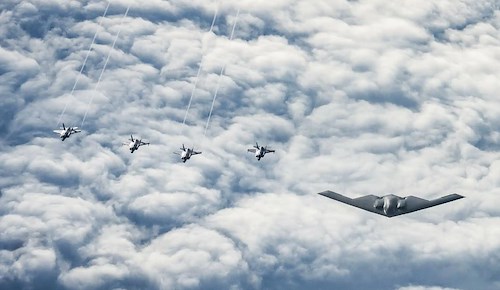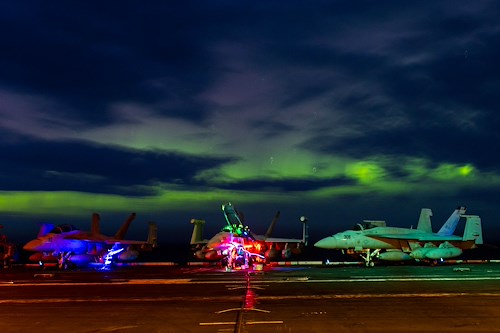On June 18, members of the U.S. European Command (USEUCOM) Logistics Directorate and representatives from 16 European nations met in Tbilisi, Georgia for the Multi-National Logistics Coordination Center (MLCC) Board of Directors (BOD) meeting to discuss logistical readiness in Europe. The biannual meeting assembles multinational collective expertise for the development and implementation of efficient and effective military logistics solutions.
During the event, the senior defense logistics representatives from Austria, Bosnia Herzegovina, Croatia, Czech Republic, Spain, Great Britain, Georgia, Greece, Hungary, Italy, Lithuania, Montenegro, Poland, Servia, Slovakia and the U.S. discussed the need to increase NATO and partner nations’ logistics capabilities and interoperability to enhance combat readiness in Europe. In particular, the MLCC is working to provide multinational solutions for logistics support in times of crisis and during exercises to address identified shortfalls and challenges.
“The U.S., NATO and partners face a number of shared logistics challenges,” Rear Adm. Paul Verrastro, director of logistics, USEUCOM, said. “Some of the challenges are internal while others are external threats. We must be prepared to address these challenges in order to deter Russian aggression.”
A recurring theme this year in European defense logistics conferences is the need to enable the rapid deployment of combat forces throughout Europe in response to a contingency.
Russia has strategically and operationally integrated information and traditional warfare to achieve their political and military objectives. As seen in Georgia and Ukraine, Russia was able to use non-kinetic means such as the spread of misinformation to complement or enable the use of more traditional kinetic warfare in the attempt to achieve their strategic aims. Combined with our desire for increased access across Europe, the ability to logistically support deployed forces during a contingency, the logistics enterprise continues to enhance our preparedness to support the force. As a result, USEUCOM, along with allies and partners, is actively exercising how it would continue to streamline and accelerate the introduction of additional forces into theater to counter a peer adversary threat.
One upcoming exercise highlighted during the MLCC BoD meeting and designed specifically to address multinational defense logistics challenges is Austere Challenge 19, scheduled for March 2019.
“Exercise Austere Challenge 19 is USEUCOM’s premier exercise to address force flow into the theater,” Verrastro said. “With our NATO partners, the combined training will refine, synchronize, integrate, and de-conflict our processes during a crisis with Russia.”




